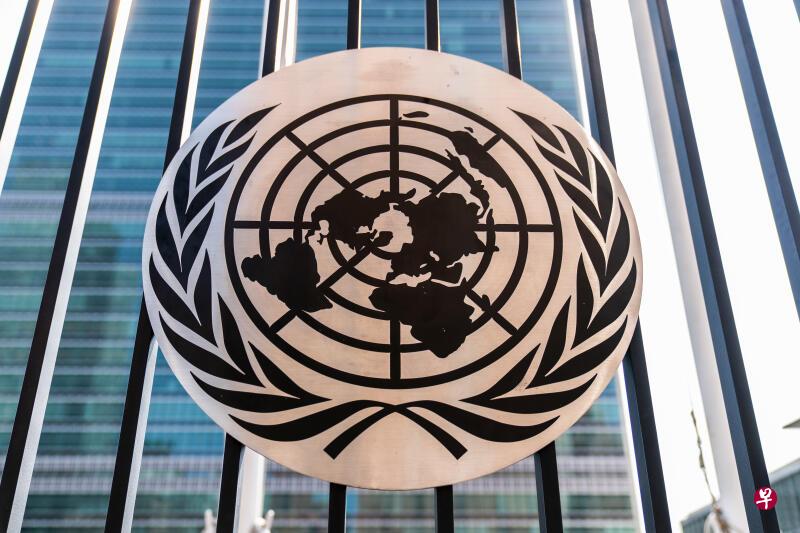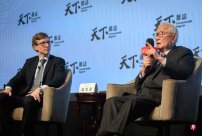
50 countries including the United States, the United Kingdom, and Canada signed a statement during the United Nations debate, condemning China's human rights in Xinjiang, and caused nearly a hundred countries to defend China.
The United States, the United Kingdom, and Canada, including Monday (October 31), signed and read a statement during the United Nations debate, condemning China ’s“ serious and systematic ”human rights behavior in Xinjiang, which caused nearly a hundred national voices to speak as a sound.Chinese defense.At the venue, the Chinese official named the United States and Canada's abuse of the UN General Assembly platform to gather small circles to provoke political confrontation and attack China. It expressed its resolute opposition and strict rejection.
Scholars of interviewed scholars analyzed that the United Nations has formed a camp opposition due to Xinjiang issues in recent months, showing that Sino -US confrontation is intensifying the differentiation of international community.Scholars have also evaluated that although China and the United Nations ’s latest offensive and defensive battles in the United Nations are still deadlocks, it is still inevitable that it will have a certain negative impact on China's international image.
During the debate of the Third Committee of the UN General Assembly on Monday in Canada, Canada read a statement signed by 50 countries.The statement said: "The human rights situation of the People's Republic of China seriously, especially for the continuous infringement of human rights acts in Xinjiang Uighurs and other Muslims."Including "quickly take measures to release all individuals who are arbitrarily deprived of freedom in Xinjiang, and urgently explain the safety and whereabouts of the disappearance, and assisted in the disappeared family reunion."
The 50 countries signed a statement include the United States and Britain, Japan, France, Australia, Israel, Turkey, Guatemala, Somalia, etc.
Nearly a hundred countries support China at the venue. Among them, Cuban represents 66 countries who oppose human rights as an excuse to interfere with China's internal affairs; Saudi Arabia represents six countries in the Gulf, Yemen and Libya, etc., calling on national sovereignty and not interfered with internal affairs.
The Chinese Permanent Mission of the United Nations delegation also strictly refuted the allegations at the venue on the day of Dai Bing, criticizing the issue of Xinjiang in the United States and Western speculation. The essence is to use human rights issues to destroy China's stability and safeguard their own hegemony. "They care about Xinjiang human rights is false, soIt is true that Xinjiang system and maintenance of hegemony. Their goal today is China, and will point the stick to other developing countries tomorrow. "
The UN senior commissioner of Human Rights Bacchitt issued a Xinjiang Human Rights Report on the eve of his departure at the end of August this year, saying that China has committed "seriously violated human rights acts" on the Minority minority of Xinjiang ethnic minorities on the grounds of counter -terrorism and anti -polarism."Strong dissatisfaction and resolute opposition."
After, many Western countries such as the United States, Britain and Canada launched a draft of human rights in Xinjiang, but it was not approved by the UN Human Rights Council on October 6.
Dai Bing was still unwilling to criticize the West, and led the war to the United Nations Commission.
Chinese Foreign Ministry spokesman Zhao Lijian also said at a regular press conference on Tuesday that the United Nations Commission is a platform for dialogue cooperation, not a corner field for division and confrontation.
He also advised a small number of western countries to "let go of the teacher's shelf" and "stop the excuse of human rights issues to do political manipulation, make rumors to discredit and curb the target".
In response to the Xinjiang human rights report earlier, Zhao Lijian criticized "hodgepodge of false information" and "serving the Western political tools of the United States and Western in the United States". "It will fail. "
Zhu Feng, dean of the School of International Relations of Nanjing University, interpreted in an interview with the United Morning Post. The recent formation of camps on the Xinjiang issue between the United Nations member states "indeed reflect the differentiation of the Sino -US conflict to the international community."
Li Mingjiang, an associate professor at the Lajielean International Research Institute in Nanyang University of Technology in Singapore, said in an interview that the United Nations member states have formed a more obvious political group and the "border selection station" on the Xinjiang issue this time, showing the two China and the United States.The strong mobilization power of the great country.
Zhu Feng and Li Mingjiang assessed that the offensive and defensive trend of China and the United States at the United Nations Commission was evenly matched and caught in a stalemate.Li Mingjiang said that this Sino -US "political show" did not have "obvious distinction between victory and defeat", but Western statements "still have certain harm to China's international image", especially in some developing countries, It will affect the social and political elites of local inclined to identify with Western values.
Zhu Feng believes that although China ’s counterattack operation at the United Nations Commission this time, I believe that it will not fight against the United States with the United States, because it is still not in the interests of the new Cold War.


